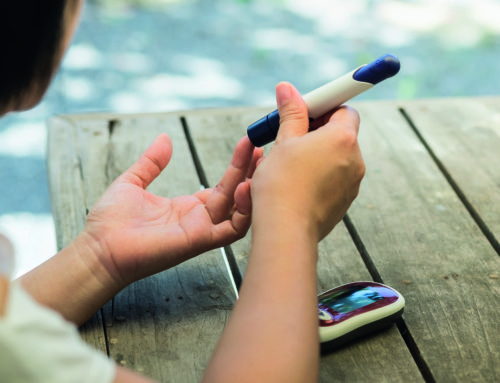A surge of optimism beckons as new research and efforts march towards the transformation of the brain tumour landscape. Erica Moyes, from the Brain Tumour Charity, explains.
If you ever hear that someone has a brain tumour, it could be one of 150 different types. Uniquely, brain tumours have wide-ranging effects depending on their location, size, and infiltration into the surrounding brain. They can change your mood, physical abilities, and even inhibitions – the things that make you you. It can take just days for a brain tumour to grow, yet brain tumours reduce life-expectancy by 20 years on average – the highest of any cancer – and it can take years to find new treatments. This simply isn’t good enough. A cure can’t wait!
To date, we’ve committed over £52 million to the highest quality international research. We’re dedicated to bringing about global collaboration to speed up the time it takes to turn discoveries into treatments and cures.
Dr Gelareh Zadeh, in Toronto, Canada, is a prime example of the impactful researchers we fund. As a Neurosurgeon, Dr Zadeh provides the opportunity for her patients to contribute directly to her meningioma research. Clinically-aggressive meningiomas arise from the membranes surrounding the brain and spinal cord in adults, and often recur after surgery and radiotherapy. We fund Dr Zadeh’s work, which has resulted in a clinical tool to predict this recurrence, and will help clinicians to prescribe more appropriate treatments.
We’re also advancing understanding and clinical practice for children with brain tumours. Since 2001 we have funded the lab-based work of Professor Steven Clifford at Newcastle University. Professor Clifford has dedicated his career to learning more about medulloblastoma and improving survival rates for children diagnosed with this tumour. Medulloblastoma is the most common high-grade (fast-growing) brain tumour in children. Because of work that we funded, Professor Clifford was a key contributor to a consensus paper that described four medulloblastoma sub-types: WNT, SHH, Group 3 and Group 4.
Importantly, this paper showed that WNT tumours have a very good prognosis. We were instrumental in driving this knowledge into the clinic by funding molecular testing for all childhood medulloblastomas in the UK. This testing enabled children to be enrolled onto the European clinical trial, PNET5, where they can access the most cutting-edge treatment.
As well as the UK’s molecular testing for PNET5, we also fund the Quality of Survival aspects for all participants in Europe. This is vital because we are at a key point in medulloblastoma treatment where we are starting to reduce treatment to enhance quality of life, especially for the WNT sub-group.
Average survival rates for all high-grade tumours are just 14 per cent and treatments have barely changed in 40 years. This is unacceptable.
We are developing a new kind of clinical trial in the name of the late Cabinet Minister, Dame Tessa Jowell: the Tessa Jowell Brain-MATRIX. We worked closely with Baroness Jowell until her death from a glioblastoma (a high-grade brain tumour) in May 2018. She advocated for a change in the design of clinical trials to enable new treatments to get to people faster. The Tessa Jowell Brain-MATRIX will initially be available from 10 centres around the UK. Adults and children with grade 2, 3 and 4 tumours will be eligible as long as they are fit for surgery to obtain a tumour sample for molecular assessment. The trial has been designed to incorporate new molecularly-targeted treatments as they become available, avoiding the need to set up a whole new trial. This removes a systemic delay and will significantly hasten patients’ access to precision treatments.
Before people can access treatments they need an accurate diagnosis and they need it urgently.
HeadSmart
Our evidence-based campaign, HeadSmart, raises awareness of the signs and symptoms of childhood brain tumours. So far, HeadSmart has helped to reduce average diagnosis times for childhood brain tumours from 13 weeks to 6.5. Now we want to accelerate awareness of symptoms and see diagnosis times reduced to four weeks.
Building on the success of HeadSmart, we will soon launch an adult early-diagnosis campaign to decrease the delay from presentation to diagnosis.
Getting a brain tumour diagnosis can make patients feel like their world has stopped – which is exactly why we won’t. Every day, we’re actively researching, campaigning, and growing our passionate community to accelerate progress towards a world without brain tumours.
The Brain Tumour Charity is striving for a world where brain tumours are defeated, by doubling survival and halving the harm of brain tumours and their treatments. We understand that our goals are ambitious, but by joining together, we know that we can reach them faster.
For more information, visit www.thebraintumourcharity.org or email research@thebraintumourcharity.org.
About the Brain Tumour Charity
The Brain Tumour Charity is the world’s leading brain tumour charity and the largest dedicated funder of research into brain tumours globally. Committed to saving and improving lives, we’re moving further, faster, to help every single person affected by a brain tumour.







